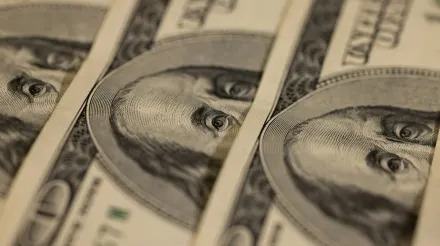(Bloomberg) -- A sizzling rally in India’s auto shares is reversing as a build up of unsold vehicles and growing discounts by carmakers pressure profit margins.
India’s NSE Nifty Auto Index is down 4.1% in August, more than double the decline in the Nifty 50 Index. Bellwether Maruti Suzuki India Ltd. has slid 6% so far in the month, on track for its worst monthly performance since December 2022.
Passenger vehicle inventories have surged to historic highs of up to 72 days, the Federation of Automobile Dealers Association said last month. Waiting period for some models, once as long as 12 months a year ago, have nearly vanished, according to MRG Capital. Increased competition among carmakers has also led to price cuts. These factors have raised concerns about whether local carmakers can sustain the robust sales seen after the pandemic.
“After such a run up there is risk that these companies will see correction,” said Manu Rishi Guptha, a portfolio manager at MRG Capital.
Over the past 12 months, the NSE Nifty Auto Index has jumped 66% compared with a 26% rise in the broader benchmark.
The slowdown has prompted some carmakers to offer incentives to maintain market share. Last month, Maruti Suzuki said it raised discount offerings amid “less than ideal market conditions.” Earlier this month, Mahindra & Mahindra executives described industry demand and environment as “tepid”.
There are still some relatively safer pockets of the auto market. “We are currently more inclined toward two-wheelers over four-wheelers,” said Deepika Mundra, an analyst at M&G Investments. Two-wheeled motor vehicles are better placed to gain from the transition to electric vehicles due to higher market penetration, she added.
Still, the highly anticipated listing of Hyundai Motor Co.’s India unit could create an additional overhang in the sector as investors gain another option, Mundra said. The South Korean firm is set to raise a record amount of money in the country in what could be the India’s largest initial public offering to date.
The market’s next test will be during the festival season starting late next month, a high season for auto sales. Last year’s 42-day season saw record vehicle sales, with nearly 550,000 cars being sold in the period. That’s was about 10% higher than the year prior.
Still, expectations are not high for a major turnaround. Demand for entry level cars is seeing little uptick and carmakers are dumping more stock ahead of the season, said Amit Hiranandani, an analyst at Smifs Ltd.
“Dealer confidence suggests that the upcoming festival season sales may be flat or lower compared to last year,” he added.






